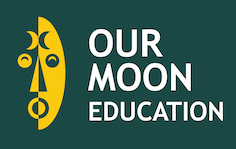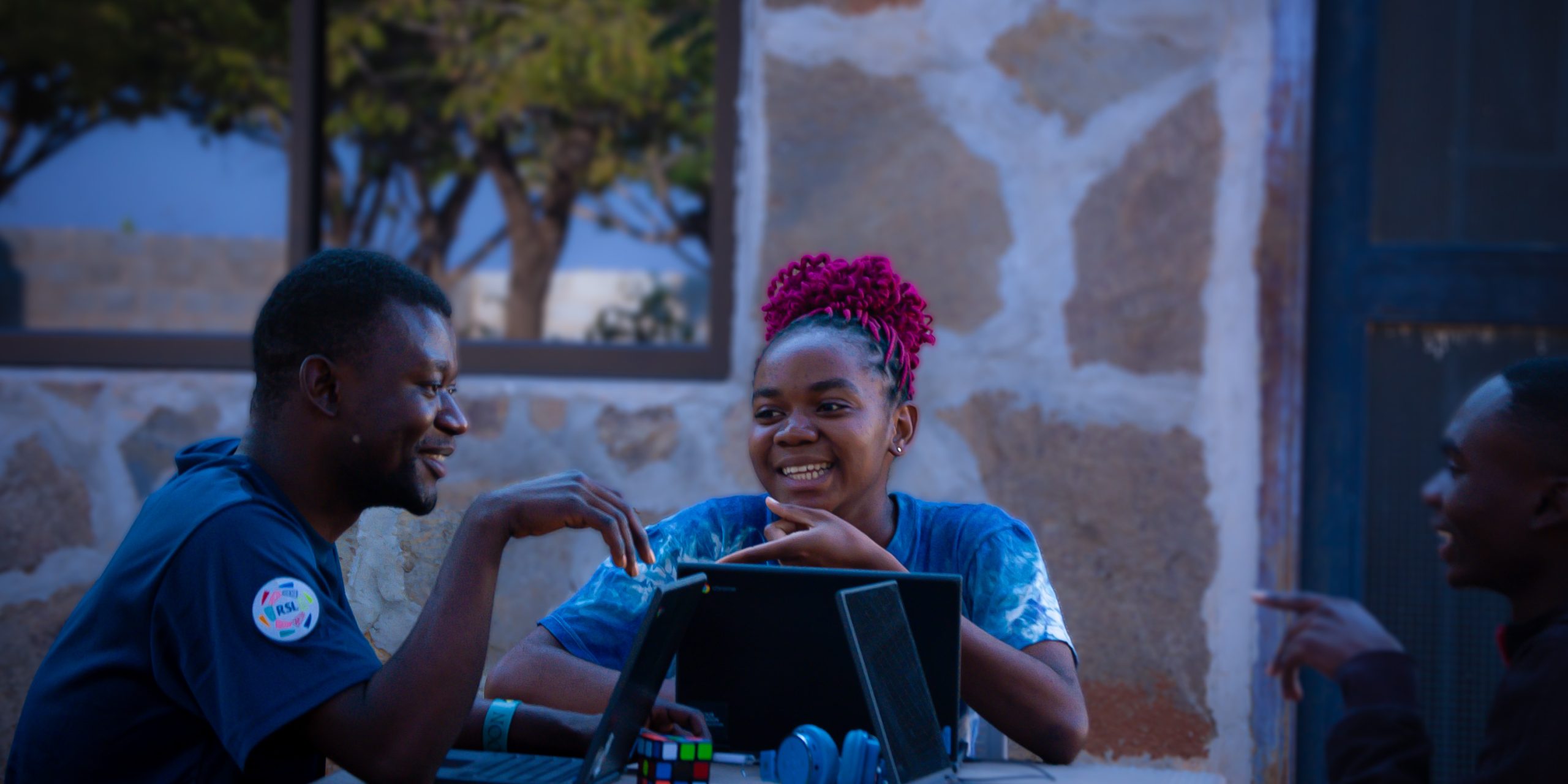Helen Leale-Green was interviewed by Alfie Blake, Tunbridge Wells (final year international development student at UEA and alumnus of The Skinners School).
Helen first travelled to Zambia on 20 June 2015 and has already had a large impact on giving its students access to higher education. Started by Helen and Justin Mushitu, the journey to where they are now is very interesting. To celebrate Our Moon’s 5th anniversary, I interviewed Helen to ask her to share Our Moon’s journey.
How did you transition from PWC to founding Our Moon?
After feeling a bit disillusioned with corporate life as a Management Consultant, I began volunteering for various education charities as this was a growing passion of mine. I also took a CELTA qualification so I could teach English as a foreign language. That led to me volunteering and becoming a trustee of an international development charity. Here, I met Justin, a Zambian student on our programme. Justin saw my passion for education and helping young people, so invited me to visit Zambia. Together, we organised a conference for teachers and students. I fell in love with the country, its vibrant colours and young people who were eager to learn. From these beginnings, Our Moon’s first Young Leaders programme started to take shape.

How did you get to where Our Moon is now?
Our Moon has unlocked scholarships worth over £2.1 million and has impacted over 3,000 young people directly and through our students. Our students are studying at universities such as Columbia University (USA), University of Edinburgh (UK), University of British Columbia (Canada) and Ashesi University (Ghana) to name a few. On top of this, Our Moon now owns and operates a site in Zambia where Justin helps implement the Young Leaders Program which has evolved since the beginning of Our Moon. Obtaining the land was quite a funny story. Justin told his grandmother that we were interested in developing a site where we could host our students. She shared the word in her local area and, within days, someone knocked on his door to offer him some land. He was invited to visit the site, a rural area two hours outside of Lusaka. It had no electricity, no running water and was full of craters created by Chinese road builders. At our site now, less than 18 months after officially acquiring the land, we now have accommodation for our students, several huts where families that support us live, a make-shift class room, a dining and kitchen area as well as simple solar power and a bore hole with a solar pump for running water.
What problems exist with access to higher education in Zambia?
Through Justin’s own stories and my visits to Zambia, I discovered there were a lot of issues with the Zambian education system. I knew I wanted to use my previous skills, knowledge and contacts to help students get to university and realised that not many students in Zambia were given this opportunity – only the privileged few have the opportunity to access higher education with the poorest students struggling despite their obvious academic abilities. Only 0.2% of Zambians attend university.
I witnessed first-hand the poor state of the top universities. I discovered that there was limited internet access and no subscriptions to online journals. The books in the libraries were very outdated. Lecturers frequently go unpaid which leads to strikes and university closures. Frequently, a four year degree can take six years to complete. What I found most shocking that there is no curriculum for 16-19 year olds in Zambia, yet students have to wait two years between the time they leave school and when they can start university. When students do attend university, there is not enough government loan money or accommodation which leads to high drop out rates.
I realised that there was a lot of unfulfilled potential among young people but that they are not taught to think critically, to make their own pathways and to know how to create their own opportunities. So whether a student studies at home or abroad, we hope that by attending our programme, they will develop the skills, knowledge and dispositions to thrive and to bring about positive social change.
What has been your biggest challenge?
I have encountered a number of challenges during Our Moon’s first five years. One of the biggest has been to provide an A-Level program at a reasonable cost. A-Levels (or an equivalent qualification) are not offered in Zambia but are usually essential to entering most universities around the world. I have tried very hard to enable our students to study A-levels but problems with availability of programmes – only two government schools were offering A-levels and the one we went with is now barred from offering the exams – teaching, resources and subject availability made it difficult.
What have been your biggest achievements?
I am extremely proud of the fact Our Moon as an operational site in Zambia helping not only our students but also the families, including their children, of all the people who help us on site. I am proud of all our students who have gone on to attend universities in Zambia and around the world and are already making an impact on their campuses. A lot of our students are involved in projects and activities themselves. Watson, who is currently studying at Columbia University, recently launched a poetry competition for Zambians to write a poem on what it means to be Zambian (https://www.facebook.com/king.sspoetry/).

I never imagined Our Moon would be where it is now and I am looking forward to continuing my goal to establishing equitable access to higher education in Zambia and seeing students complete their degrees and work to bring about positive social change.
From the UK, we have developed a strong supporter base. We put on a ball just before lockdown which was held at the Hotel du Vin in Tunbridge Wells, where we raised £11,000. We hope to repeat its success next year. We also put on a successful fundraising walk in Zambia last year where we walked 100 kilometres over four days. We hope to build on this experience so that we can invite more guests to Zambia so that they have the chance to see our projects and meet our students.
Goals for the future?
In terms of the future of Our Moon, I want to remain being hands on. I enjoy teaching the students two afternoons a week via zoom and I have missed visiting them during lockdown. My goal is to increase student numbers and also make our facilities accessible to more people within our local community so that they too can gain more skills and knowledge.
Conclusion
Hearing and writing about the journey Our Moon has been on in just five years has been very inspirational. The fact that Helen and Justin come from completely different backgrounds but crossed paths and shared the same passion is amazing to see. I think it’s great that Helen saw an issue and knew she had the skills to help and has been determined ever since to make an impact. I wanted to get involved with Our Moon because it is a local charity and I share a lot of the same goals and values which Our Moon holds.


